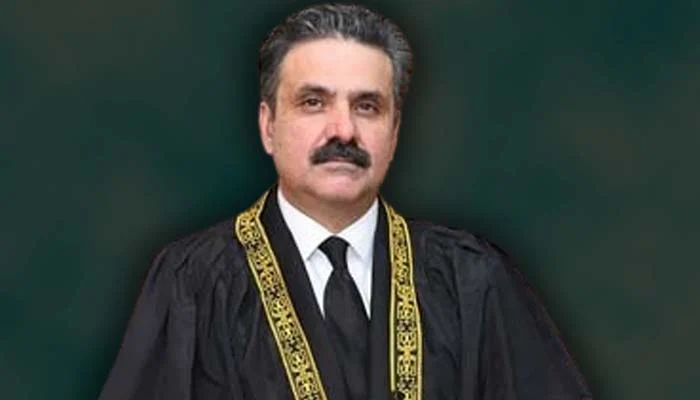SLAMABAD – In a significant development, the special parliamentary committee tasked with appointing Pakistan’s next Chief Justice has approved the nomination of Justice Yahya Afridi by a two-thirds majority, sending his name to the Prime Minister for final approval. The decision, made after an hour-and-a-half-long meeting on Tuesday, advances Justice Afridi toward the highest judicial position in the country.
This appointment process, however, was not without controversy. The Pakistan Tehreek-e-Insaf (PTI) and the Sunni Ittehad Council boycotted the committee’s proceedings, citing dissatisfaction with the new appointment process introduced through recent constitutional reforms. PTI’s representative, Barrister Gohar Ali Khan, confirmed the boycott following discussions with parliamentary leaders in the chamber of National Assembly Speaker Sardar Ayaz Sadiq.
“We have made our decision. We will not be part of this committee’s meetings,” Barrister Gohar said, reaffirming PTI’s stance against the reformed selection process for the country’s top judicial position.
Complications Amid Boycott
The absence of PTI and Sunni Ittehad Council members added tension to the proceedings. Despite efforts by a four-member subcommittee—comprising Ahsan Iqbal, Rana Ansar, Raja Pervez Ashraf, and Kamran Murtaza—to engage PTI and convince them to participate, the boycott persisted. The subcommittee had been formed with the aim of bringing PTI into the critical judicial selection discussions, but the outreach attempts ultimately failed.
The boycott delayed the committee’s original schedule, which had aimed to promptly decide between the three senior-most judges of Pakistan’s Supreme Court: Justice Mansoor Ali Shah, Justice Munib Akhtar, and Justice Yahya Afridi. These judges were the shortlisted candidates for the next Chief Justice, a role currently held by Justice Qazi Faez Isa.
Despite the absence of PTI-linked and Sunni Ittehad Council members, the remaining committee members proceeded with their deliberations. The profiles of the three nominated judges were presented by the Secretary of Law and Justice, outlining their judicial careers, educational backgrounds, and qualifications for the role. After reviewing the profiles, the committee voted 8-1 in favor of Justice Afridi, with JUI-F’s Kamran Murtaza casting the lone vote for Justice Mansoor Ali Shah.
Judicial Reforms and Their Impact
The new appointment process represents a shift from previous practices. Under the recent judicial reforms, the three senior-most judges of the Supreme Court are shortlisted, and the parliamentary committee now holds the responsibility of selecting the Chief Justice from among them. This marks a departure from the traditional system, where the senior-most judge would automatically ascend to the role of Chief Justice.
The government has framed these changes as part of broader judicial reforms aimed at increasing transparency and accountability in judicial appointments. However, the reforms have raised concerns about judicial independence, with critics arguing that the involvement of a parliamentary committee introduces political influence into the selection process.
The PTI’s boycott, in particular, reflects the ongoing political tensions surrounding these judicial reforms. PTI has expressed frustration over several recent judicial decisions unfavorable to the party, which has contributed to their decision to stay away from the committee’s proceedings.
Next Steps in the Appointment Process
Now that Justice Afridi’s nomination has been approved by the parliamentary committee, the recommendation will be forwarded to Prime Minister for formal approval. Once the Prime Minister approves the nomination, it will be sent to President for final confirmation, completing the appointment process.
Justice Afridi’s nomination is expected to proceed smoothly to the formal stages, barring any unforeseen political or legal challenges.
This appointment is being closely watched, not only because of the judicial reforms but also due to the broader political climate in Pakistan, where the judiciary’s role has been increasingly scrutinized amid political instability. As the next Chief Justice, Justice Afridi will inherit a judiciary facing critical challenges, including maintaining its independence while navigating a fraught political environment.
Conclusion
Justice Yahya Afridi’s nomination marks a pivotal moment in Pakistan’s judicial landscape. Despite the boycott by PTI and the Sunni Ittehad Council, the parliamentary committee has moved forward with the nomination, signaling the continued functioning of the judicial appointment process amidst political divides. How Justice Afridi navigates his future role as Chief Justice will be closely watched, particularly in the context of ongoing reforms and the judiciary’s position in Pakistan’s evolving political framework.













